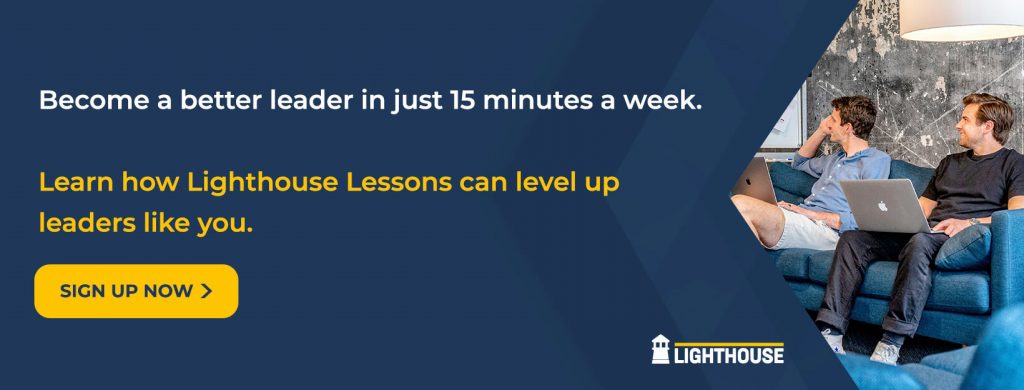"Hire slow, fire fast."
If you've read anything on hiring, you've probably heard that mantra. It's one of those sayings that gets injected into most hiring process conversations at some point.
Whether you agree with it, or despise it, you're still left with the same question: how do I make better hiring decisions? What interview tactic can help make sure I have fewer false positives and avoid missing out on great hires that applied?
Over the years, I've hired dozens of people, and tried a variety of tactics. I've also asked a lot of friends for advice, and read books and blog post on the subject.
There is one interview tactic above all others that has done more to improve my hit rate on hires than any other.
Today, I'll share it with you, and why it's such an effective tactic.
The Best Interview Tactic to will Help You Hire Great Employees
There are many great questions you can ask in interviews, and a lot of different styles to the discussions can you have.
This interview tactic is not about the questions.
Questions can only get you so far.
Instead, this tactic is all about action. It's about seeing into the future how they could do the job you're hiring them for.
And how do you do that? You give them an assignment related to exactly the responsibilities of their potential future job with you.
Actions >> Words
In From Impossible to Inevitable, Aaron Ross describes this interview tactic well for hiring a digital marketer: (See more of their tactics here)
"Step 5: Assign Homework: Paul sent an email outlining the steps of his interviewing process to all those who had applied....and asked them to write a 300-word essay (a) on any aspect or trend in digital marketing that they found interesting and (b) why they would be a great fit for the role. This helped eliminate the people who weren't serious or qualified and helped Paul quickly get a sense of how/if they'd fit."
No matter the role, you should be able to come up with an assignment they can do that will reveal their fit in the role you're hiring. Here's a few examples:
- Have a marketer write a marketing plan that they'd execute on in their first 90 days to hit a growth target.
- Have a designer lay out the process for designing a new feature that will delight customers.
- Ask an engineer to describe their process for maintain a legacy code base. How would they help another engineer come up to speed quickly?
- If you have a consumer product, ask a product manager for the 3 biggest things they'd fix.
- Ask an executive for their plans for getting you from your current stage to the next level.
Note: If you ask them to do work you'd actually use (like writing a blog post, mock-ups or designs you use, etc) you absolutely should compensate them whether you hire them or not.
This is not free work. Set the standard you value them and their time even before you hire them, and you'll make a great impression.
Why do this?
Whether you want to completely overhaul your hiring process, or just make some small tweaks to improve it, adding an assignment can provide you valuable insights.
Here's a few of the biggest benefits to this key interview tactic.
1) Get more great ideas
Interviewing is a time consuming process for you and your team. Why not make it a valuable conversation every time?
When you give them an assignment, you're getting fresh ideas from every serious candidate. You can't hire them all, but you can take the best ideas and apply them anyways. This makes every conversation valuable.
These assignments can also help motivate your team to take the interview process more seriously; when you have the candidate engage in real problems and opportunities your team faces, they'll be more interested in each candidate's answers.
2) Really learn if they're a fit for the job
Giving them an assignment and then going over it with them answers a variety of highly valuable questions that can help you make the best decision on a candidate:
- Does the candidate work in a way that fits with your culture?
- Do they show the attention to detail you value?
- How do they take feedback from you on their work?
- Are they asking good questions, and engage you in the discussion of their assignment?
- Or, do they have a "my way or the highway” attitude showing they think they're always right?
Why ask people terrible questions like, "what's your greatest weakness?" or "what's your superpower?" when you can have them show you their abilities?
Even better, it helps you understand if they would work in the direction you need if you hired them.
While you can assume some things about their skills based on resume bullet points, when you're hiring for roles where people can specialize (like say an inbound marketer, vs someone experienced in paid acquisition), seeing their approach can help see if it actually fits what your company needs.
Some people are able to adapt their tactics for the company, while others see they have a hammer, and treat everything like a nail. Recognizing this can save you a lot of heading in the wrong direction by hiring someone that interviews well, but doesn't actually have a plan that fits your true needs.
3) Hit the ground running on Day 1
Too often, people are hired, and then the plans for what they'll do is figured out on the fly. This leads to lost weeks as they slowly onboard and find their direction.
Instead, if they've already been thinking about the problems you're solving and proposed solutions, they can come in on day 1 and execute on the best of those.
This gives them a mandate to move quickly, resisting the temptation to wait to start having an impact; they already have a plan, and your team that helped interview them knows it, too.
Even better, this can show your superiors how well you use your budget for new hires. If your team shows they start adding value quickly when hired, you're more likely to get the opportunity to grow your team further, since the payback period will be faster than teams that move slowly.
4) Create an easy filter to save time
Unfortunately, not everyone will complete the assignment. This can be for a variety of reasons, and most of them are good reasons not to hire them:
- Laziness
- Lack of real interest in the job
- Lack of time due to other interviews
Now, some people may be concerned about compensation for the work (as mentioned above), or ask for extra time. If you're able, you should absolutely accommodate those, so that you only weed out weak candidates.
If you place the assignment before an on site interview, you can save your team hours of lost productivity. Then, you only schedule an on site after you've received the assignment and it's of a high enough quality to deserve discussing.
Best of all, if you're on the fence about a candidate, it can help underdogs shine.
Whether they're a bit junior for the role, changing careers, or switching industries, if they crush the assignment you can uncover diamonds in the rough. Thanks to the assignment, you'll also have proof of their ideas and abilities if you need to convince a skeptic to take a chance on them.
5) Build excitement for the job
Hiring great people is a tough challenge. Not only do you have to find the right people, but they have to want to join you.
Great employees have options. Their network is full of people that know how good they are and would love to hire them. They have resumes that show their abilities to every company interviewing them.
Anything you can do to stand out to them makes them more likely to join you instead of their other options.
An assignment is the perfect recruiting hook; you're helping them visualize a future of working with you. If they really are a fit and can see the impact they'll have, that will get them excited about taking the job.
By doing this, you can spend less time selling potential hires on perks, compensation, and other undifferentiated offerings.
Instead, you bring their focus to the kind of work they do, who they'll work with, and the way you value their ideas. A ping pong table may be cool, but making it clear how they'll be excited to get up every morning is 100 times more meaningful.
Have you ever used assignments as an interview tactic? How did it go? What advice would you give others creating an assignment?










